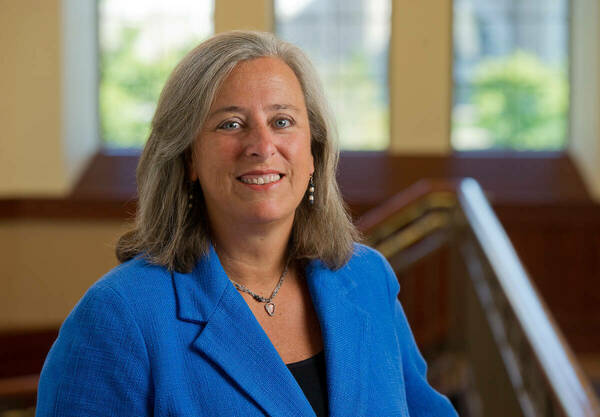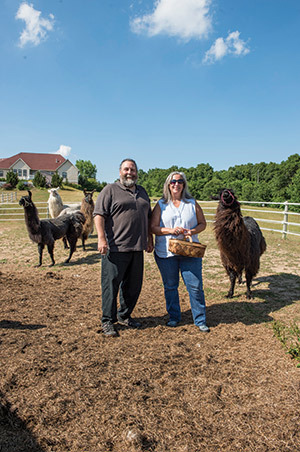
Eck Institute for Global Health faculty, Sharon Stack, shares some of her background, research interests, and her unusual family pets. Stack is currently the Ann F. Dunne and Elizabeth Riley Director of Harper Cancer Research Institute and Kleiderer-Pezold Professor of Chemistry & Biochemistry at the University of Notre Dame.
Q. Tell us about your research program. How and when did you first become interested in the field?

A. My background is in biochemistry, studying enzymes that modify the extracellular environment. This background is applicable to both basic discovery-based research, as well as to a variety of disease states. Previous work in emphysema and arthritis transitioned into a cancer-based research program when I was a post-doc at Duke University Extracellular matrix remodeling is a key event in primary tumor growth and in metastasis. The lab has worked with many tumor systems over the years including melanoma, oral cancers and gynecologic malignancies, but most of our current research focuses on ovarian cancer.
Q. What is your greatest scientific/research achievement to date? Is there a publication you are most proud of?
A. Our ovarian cancer research has matured to a true interdisciplinary study that integrates both the primary tumor, the unique metastatic microenvironment (peritoneal cavity) and the ‘host’ who has the disease. We are modeling the impact of numerous host factors including parity, obesity and age on tumor growth. Of course, we are still looking at extracellular matrix remodeling, particularly with regard to aging.
Q. What do you find to be the most rewarding aspect of training students? How has working with students impacted your research?
A. The most rewarding aspect of training students is when they make the transition from listening to me to teaching me. This is when they truly begin to ‘own’ their project and are highly intellectually invested in its success. Biomedical research would not be possible without the amazing efforts of students who put in long hours to help us solve challenging problems.

Q. What advice would you give your college self?
A. I wouldn’t change much. I had the perfect combination of a challenging major (biochemistry), a beautiful setting (Clemson University), awesome professors, and great friends. One thing I would say is to appreciate this unique transitional time of life because adulthood is significantly overrated.
Q. Tell us a fun fact about yourself, or something you enjoy doing in your free time. What’s it like to balance teaching, conducting research, and home life?
A. The balance of research, administration, teaching and family life is a major challenge. It is important to be as organized as possible, prioritize, and delegate. At home it is very useful to have a supportive partner willing to shoulder >50% of the load when necessary. Also, it’s good to realize that no one ever died from some dog hair on the floor or cheese & crackers for dinner. I enjoy gardening in the short garden season in our region, even when I don’t have time. Pulling weeds is good therapy and ripe tomatoes with fresh basil are the ultimate reward! A fun fact is that our family has 6 llamas and 2 alpacas. Because my husband is of Italian heritage, the llamas are named after pastas (think Buccatini, Fusilli, etc.) and the alpacas are the sauces (Carbonara and Aglia-Olia). Oh, and llama poo makes great fertilizer for the garden!
Originally published by at globalhealth.nd.edu on September 26, 2019.